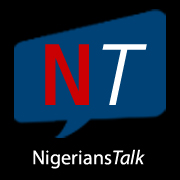kunledurojaiye
Archive for
Nigeria’s 2015 Elections – A Forecast
Nigeria’s 2015 presidential elections are due to hold in a couple of days, barring any last minute changes to the rescheduled date, March 28. The poll was initially scheduled for February 14 but deferred due to ‘security concerns’, as stated by the Independent National Electoral Commission (INEC). The postponement was not a welcome development to the All Progressives Congress (APC), the country’s strongest opposition political party, considering the massive momentum and traction gathered ahead of the planned February 14 date. The ruling Peoples Democratic Party (PDP) on the other hand appeared to be in sync with the decision to reschedule. Popular public opinion holds that if the elections had been held as initially planned, the APC would have come out victorious, perhaps inching towards a landslide. This impression was further alluded to by the likes of Dr. Frederick Fasehun, leader of the Oodua People’s Congress (OPC), in a speech delivered at a post-national conference forum on March 20.
The six weeks of postponement have afforded the ruling party a little more time to ramp up its campaign efforts, with a reported unrestricted flow of cash incentives to party loyalists and the public at large in a bid to secure sufficient votes to return the incumbent president, Dr. Goodluck Jonathan, to power. Public impression was that APC momentum had burned out, its campaign funds exhausted, to the extent that even campaign jingles via traditional media were few and far between compared with the PDP’s which appeared to have been heightened. Town hall meetings also became a major channel employed by both parties, reaching out to multiple voting segments.
Several conspiracy theories characterized the six week waiting period, chief of which was the alleged plan of the PDP to ensure that Prof Jega, the electoral body chairman, was removed from office via terminal leave on or before March 28. Three days to the elections, Prof Jega still remains the INEC chairman. Likewise, there was the war against the use of PVC’s and card readers, considering that INEC only decided to run a public sample test post February 14. The tenacity and commitment of INEC and its stakeholders met this opposition effectively, restoring public confidence in the use of PVC’s and Card readers as part of anti-electoral fraud initiatives. INEC continued to progress distribution of PVC’s to eligible voters and to date has recorded an approximate 82% PVC collection rate. This assumes that out of 68.8 million registered voters per 2015 Voters Register, 56.4 million have received their permanent voter cards.
The success of the military in its onslaught against insurgency in the North East has told its own story so far. Regardless, there are still major concerns surrounding the seeming ‘strategic’ timing of this recent wave – “why wait to do in 6 weeks what should have been done over 6 years?”
With the 6 week waiting period almost exhausted, it is natural to expect to see a shift in focus from conspiracy theories to election result forecasting on several bases and assumptions. Leveraging data from INEC’s Voter Register per geopolitical zone, assuming historic voting patterns adjusted to reflect current political sway, an average of 65% voter turnout in each State, admitting the influence of incumbent governors on their states, ongoing public response to party campaigns, and intuitive subjectivity, the table below presents an individual forecast of what may be expected. It is by no means the final result and cannot be so interpreted. Rather, it is a prediction anticipating several cross comparisons. This forecast predicts a majority victory for the APC in the presidential elections with 18.4 million over PDP 17.0 million votes.
For cross comparisons, share your forecast here


